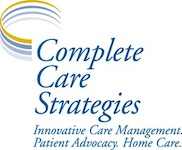For seniors and those who care for them, developing the right medication regimen can be one of the most challenging barriers to healthy aging. Finding the proper meds, at the right dosage, with limited side effects, and sticking to a determined schedule, is no easy task; it’s one that requires patience and can be tedious — but ultimately can lead to better health and a more satisfying quality of life.
If you’re looking to get your health on track this spring, here are some tips you can follow to make the most of your medications.
Teamwork
We’ve all heard the expression, “There is no ‘I’ in teamwork,” and the meaning behind that is especially relevant for seniors. Developing a successful medication regimen shouldn’t be something a senior undertakes himself or herself; instead, like many tasks associated with aging, the individual’s circle of care can play a big role in helping him or her create and commit to a plan for medication.
Spouses, children and even friends and neighbors should be involved. From helping seniors research different medications and their side effects to learning about payment options, loved ones can be integral in making the plan a success.
Similarly, physicians can also be vital assets. Seniors and their caregivers should rely on doctors’ knowledge and advice for which medications to select, and tips on how to stick to a regimen; however, as always, patients and their families should do independent research, ask plenty of questions and educate themselves about their medications.
See something, say something
Trying different medications for the right fit isn’t as easy as slipping on different shoes in the shoe store until you find what’s best for you.
Not all medicines are right for each person; some people may be at risk for side effects, or others may take another med with which it would interact. Adjusting the dosage is also a careful and measured, yet needed, practice. If something isn’t right with the medicine itself, or the amount taken, there can be serious health consequences.
According to the Family Caregiver Alliance, medication-related problems (MRPs) include depression, delirium, changes in speech and memory, loss of dexterity and more. If you notice any of these symptoms in yourself or someone you care for, take action. While some symptoms may be indicative of another condition, or of the natural process of aging, the potential of an MRP needs to be considered.
Innovations
Adhering to a medication regimen can be challenging, but there are some new developments to help seniors and their caregivers with this process.
A declining memory is something we all encounter as we age, which can make it harder for seniors to take their pills on time; even younger caregivers may occasionally forget when to dispense pills! Several new products that take advantage of modern technology are available to deal with this common problem, such as pill containers that can be programmed to alarm when meds need to be taken or computer applications that assist with scheduling.
We all grapple with memory problems, but thankfully there are resources out there to help keep us on track!
Spring is the perfect time for getting serious about your health and the health of your loved ones, and regimenting and regulating medications can be an important tool in that process. Spring into healthy aging by educating and empowering yourself about your medications.
Beverly Bernstein Joie, MS, CMC
Complete Care Strategies

